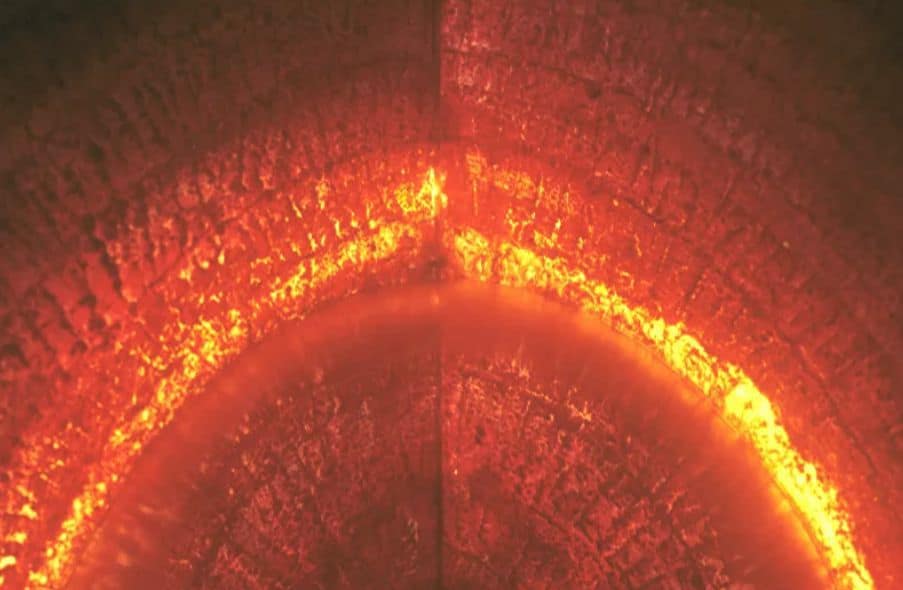Previously, the inner core of our planet was estimated to have formed between 1.3 billion to 4.5 billion years. A team of the U.S. and Chinese scientists shed light on its origin.
Researchers managed to recreate the conditions of the Earth’s center in a laboratory and concluded that it is actually between 1 to 1.3 billion years old.
During the experiment, which lasted about two years, the scientists pressed laser-heated iron samples between two anvils made of diamond and measured the conductivity of the substance under conditions similar to the core, where the pressure exceeds a million atmospheres.
One of the study’s authors, Youjun Zhang, explained that “Once you actually know how much of that heat flux from the outer core to the lower mantle, you can actually think about when did the Earth cool sufficiently to the point that the inner core starts to crystalize.”
The experiment also contributed to a better understanding of the so-called geodynamic, the mechanism that supports the magnetic field of our planet, protecting it from cosmic rays.
According to the study’s lead author, Jung-Fu Lin, “People are really curious and excited about knowing about the origin of the geodynamo, the strength of the magnetic field, because they all contribute to a planet’s habitability.”
